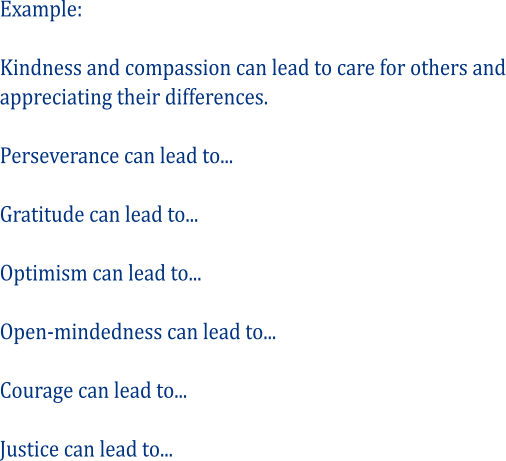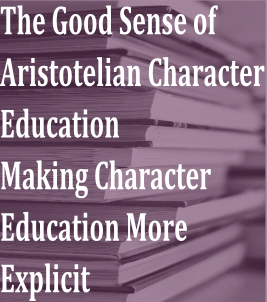
In this section, you will learn about what character is and why it matters, not only in the professions, but in wider society. Character development encourages human flourishing. To flourish is not only to feel happy, but to fulfil one’s potential. Human flourishing requires the development of moral, intellectual, civic and performance virtues.
The Jubilee Centre defines character as ‘a set of personal virtues that produce specific moral emotions, inform motivation and guide conduct. Character education is about the acquisition and strengthening of virtues: the traits that sustain a well-rounded life and a thriving society.’
Watch this trailer for a documentary commissioned by the Jubilee Centre that explores the place of character and virtues in the education of young people today.


a) Download the worksheet and, in small groups, note down ways in which character was taught or developed when you were at school or college. Is this different to how character is developed at home? This could be either formally or informally. How could character development have been improved in these environments?

b) Are there any disadvantages to trying to teach character? Is character education best developed when taught discretely or caught as part of a whole-school ethos? Summarise your thoughts and discuss in class.
c) Add your own category to discuss how and where character can be developed outside of the home/school and discuss with the rest of the group.
d) Discuss which environment has had the most impact on the formation of your own character and why.
Use the discussion boards to debate your answers.

Download the Virtuous Character for the Practice of Law report and look at the ‘ideal lawyer’ character strengths in Appendix 2 (page 29), as reported by undergraduates, LPC/BPTC students, practising solicitors and practising barristers. Do you agree with the top 6 ‘ideal’ character strengths reported by each cohort? If you do not agree, what would be your top 6 character strengths for the ideal lawyer and why?

Developing positive character strengths has many benefits. Complete the sentences below to identify some of the benefits of character education; an example has been given.

Discuss  your answers with other learners.
your answers with other learners.

You have considered in Activity 1 some of the ways in which character was developed in your school/college/home. Now consider any missed opportunities that there may have been in the past to address issues of character and virtue (by you, or by others) and how you would seek  to maximise those opportunities from your current perspective. What would you do differently? Discuss your answers with other learners.
to maximise those opportunities from your current perspective. What would you do differently? Discuss your answers with other learners.

Ruth Cigman- This paper explores the idea of confidence. It raises some sensitive questions: to what extent does our urgent wish to ‘enhance children’ give rise to excessive confidence about our prospects of success? What kinds of confidence should we hope to inspire in children and adolescents? How should confidence develop in the young? | Dan Wright- This paper argues for an explicitly taught course to teach character education, claiming it has a vital part to play in a school’s broader provision for building character. It stresses that a discrete taught course provides an important ‘addition to’ a school’s provision for Character Education, rather than being offered ‘instead of’ the other more indirect, implicit means. |








